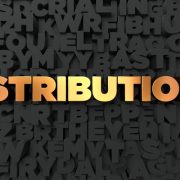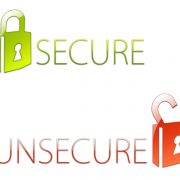Avoid Getting Your Self-Directed IRA Disqualified by the IRS!
Self-Directed IRAs are powerful tools that help thousands of Americans accumulate money for a secure retirement, increase diversification and lower the risk of exposure to economic and financial shocks, and pass these assets on to their heirs. But there is a catch: Self-Directed IRA investors also have to comply with a series of strict rules that restrict what they can do with their Self-Directed IRA assets.
Failure to comply with these rules, detailed in IRC Section 408, Section 1361(b)(1) and Section 4975, may result in your Self-Directed IRA becoming disqualified, and triggering a series of bad things under IRC Section 4975.
You do not want your Self-Directed IRA to trigger bad things under IRC Section 4975.
Here is what happens:
If your Self-Directed IRA engages in a prohibited transaction, 4975(a) imposes a 15 percent tax on the entire amount involved in the prohibited transaction on the prohibited person.
So, if you or your spouse sell a house from your Self-Directed IRA directly to your daughter’s IRA for $200,000, your daughter would face a tax bill of $30,000. Under Section 408 of the Internal Revenue Code, your direct descendants and those of your spouse are both disqualified persons with respect to your own IRA, as are your parents and grandparents and those of your spouse, and any entities they control.
But wait… it gets worse.
Paragraph (a) imposes the 15 percent tax on any parties involved in the prohibited transaction.
Guess what! Your IRA’s a party to the transaction!
So, the IRS could impose a 15 percent tax on your IRA as well as the prohibited counterparty, on the entire amount of the transaction.
But wait… it gets even worse.
If you do not unwind the transaction within the tax year, Section 4975(b) potentially increases that tax to 100 percent of the transaction amount on certain parties.
More commonly, though, what really happens is that the transaction triggers IRC Section 408(e)(2), which means that the entire IRA is disqualified as of the beginning of the year. You no longer get to defer taxes in the IRA, and the IRS will deem all the assets in the account to have been distributed that year. That means you get to pay income taxes on the entire amount distributed (really, on the entire balance of the Self-Directed IRA), along with any penalties that may accrue from early withdrawal.
You do not get to stretch things out by taking substantially equal periodic payments under Section 72(t).
So be very careful when dealing with members of your own family, or with businesses or assets you or any other party that may potentially be a disqualified party under IRC Section 408, or any asset that may be disqualified as a collectible under Section 408(m), including art, antiques, metals (other than certain types of coin or bullion), gems, stamps and coin collections and alcoholic beverages. You also cannot buy life insurance contracts using a Self-Directed IRA, nor can you own an interest in an S-corporation, without risking triggering prohibited transaction penalties.
If you have any doubts, or if there is any possibility a contemplated transaction could run afoul of prohibited transaction or disqualified party rules, STOP! Call a tax professional or attorney or other qualified professional and have them review the transaction.
The rules are easy to follow if you know them, but if you are dealing with a checkbook control IRA or running a closely-held business within your Self-Directed IRA, they are very easy to accidentally break if you are not careful and you do not know the rules.
Interested in learning more about Self-Directed IRAs? Contact American IRA, LLC at 866-7500-IRA (472) for a free consultation. Download our free guidesor visit us online at www.AmericanIRA.com.






